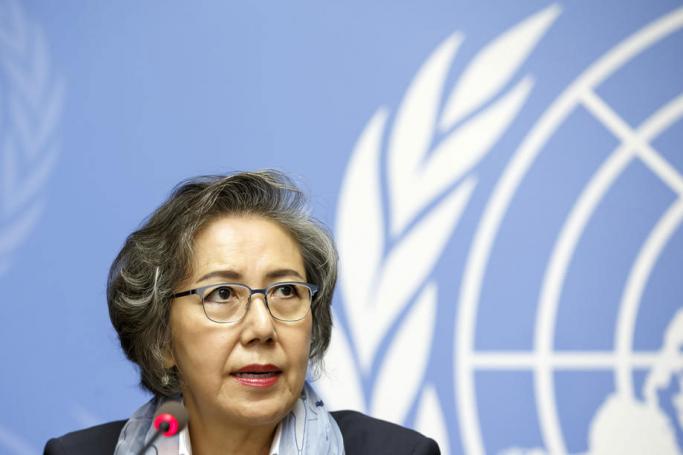A UN human rights expert has implored Myanmar’s civilian leader Aung San Suu Kyi to ‘feel with her heart before it is too late’, saying that even if refugees wished to return, they have little to go back to.
Yanghee Lee, the Special Rapporteur on the situation of human rights in Myanmar, told the Human Rights Council the situation in Myanmar was of extreme concern, and was not what she and others had hoped to see nearly four years after the election of the National League for Democracy.
“I would like to ask the State Counsellor if the Myanmar that exists today is what she had truly aspired to bring about throughout the decades of her relentless fight for a free and democratic Myanmar? I implore you Madame State Counsellor to open your eyes, listen, feel with your heart, and please use your moral authority, before it is too late.”
Despite international condemnation, Lee said Myanmar had done nothing to dismantle the system of violence and persecution against Rohingya, and that the Rohingya who remain in Rakhine live in the same dire circumstances that they did prior to the events of August 2017.
“They are denied citizenship and recognition, face regular violence (including in the context of the ongoing conflict between the Arakan Army and the Tatmadaw), are unable to move freely and have little access to food, healthcare, education, livelihoods and services,” she said.
The Special Rapporteur also expressed concern about conflict between the Tatmadaw and the Arakan Army, and accusations of indiscriminate use of heavy artillery fire, gunfire and landmines in civilian areas and civilians were killed as a result.
She said that in August the conflict in northern Shan worsened after coordinated attacks by the Myanmar National Democratic Alliance Army, the Ta’ang National Liberation Army and the Arakan Army, known as the Three Brotherly Alliance. The attacks sparked intense fighting between the Tatmadaw and the ethnic armed organisations across inhabited areas and along main roads in northern Shan.












